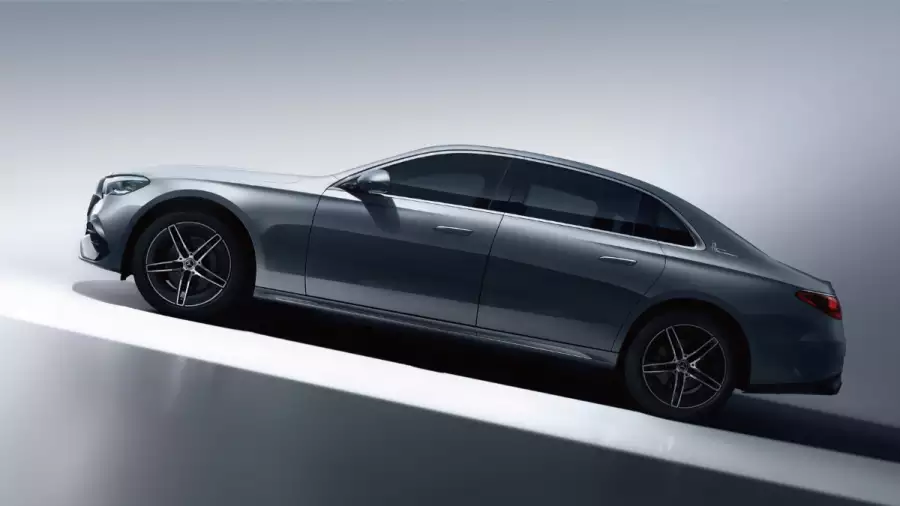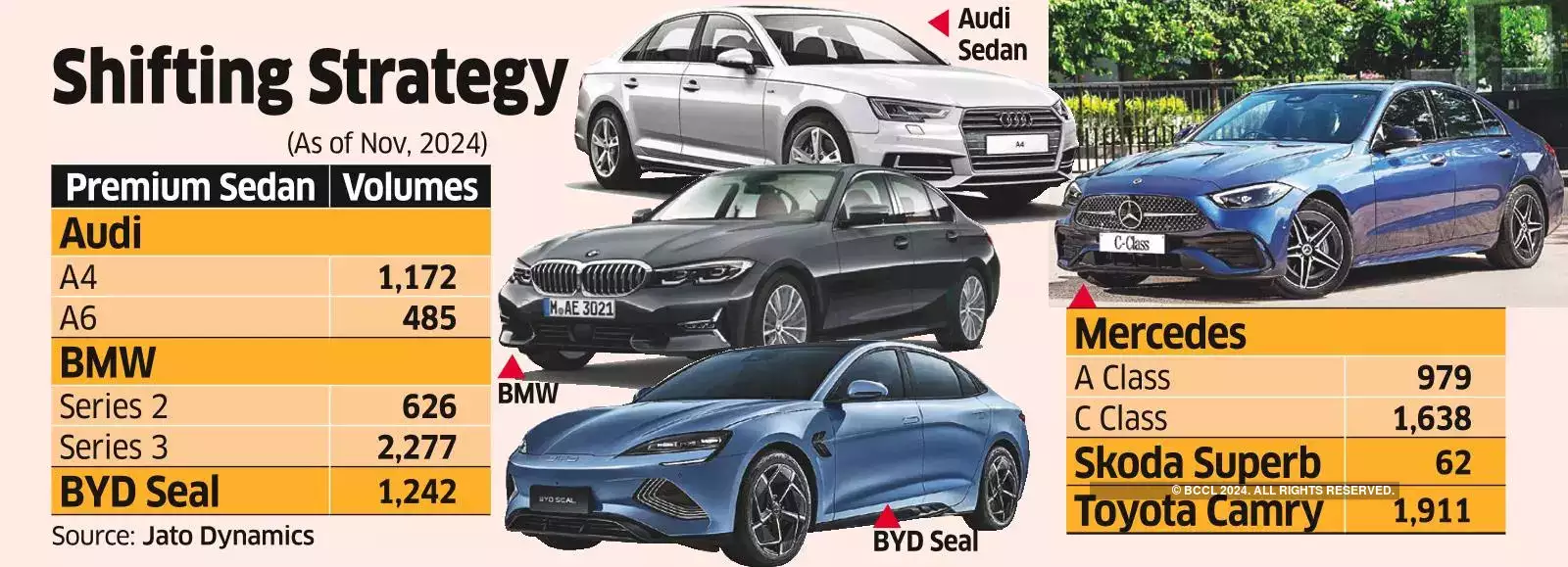 While the premium sedan segment's share in the overall domestic luxury car market has moderated to 24.8% in 2024 from 35.9% in 2022, manufacturers are successfully executing distinct premium positioning strategies.
While the premium sedan segment's share in the overall domestic luxury car market has moderated to 24.8% in 2024 from 35.9% in 2022, manufacturers are successfully executing distinct premium positioning strategies.India's premium sedan market is experiencing a strategic shift as manufacturers prioritise value creation over volumes through luxury, technology and performance integration.
Toyota, with its recent launch of Camry at a dealership price of ₹48 lakh, is blending luxury with technology. The Japanese auto major, which has charted a different course, is backing its strategy with 25.49 km/litre efficiency and an 8-year/160,000 km hybrid battery warranty.
"Through the longer battery warranty, we bring peace of mind to customers buying a hybrid electric vehicle and enhancing the momentum of vehicle electrification in the country," said a spokesperson for Toyota Kirloskar Motor.
Mercedes-Benz, on the other hand, is using the pure luxury approach and its priority remains top-end feature-rich vehicles. The C-Class, priced at ₹62.57 lakh and positioned as the 'Baby S-Class', targets first-time luxury buyers, said Santosh Iyer, MD &CEO, Mercedes-Benz India.

The new Camry, with its main rival being the Skoda Superb, has also become an alternative to the likes of Audi A4, BMW 3 Series and Mercedes C-Class, priced in the range of ₹46-61 lakh. Sales of the Camry are already inching closer to the number one player BMW 3 Series at 2,277 units in 2024. Sales of Toyota Camry stood at 1,911 units and Audi A4 at 1,172 units, according to data collated by Jato Dynamics.
While the premium sedan segment's share in the overall domestic luxury car market has moderated to 24.8% in 2024 from 35.9% in 2022, manufacturers are successfully executing distinct premium positioning strategies.
"In this evolved market, success will be defined by product positioning and clear value propositions rather than pure volume metrics," said Ravi Bhatia, president, Jato Dynamics.
This strategy aligns with broader luxury car market trends, where average prices have risen 6.9% annually to ₹90.6 lakh, significantly outpacing the premium sedan segment's 2.9% price growth.
The premium sedan segment's focused strategies are replacing broad-market approaches, which shows the premium sedan market, while smaller at 10,392 units through November 2024 compared to the luxury segment's 41,937 units, has matured enough to support multiple paths to premium positioning, said Bhatia.
The trend is reflected in product strategies across manufacturers. Mercedes-Benz's C 300 AMG Line, for instance, comes with distinctive features like Burmester 3D surround sound, supporting its premium positioning.

